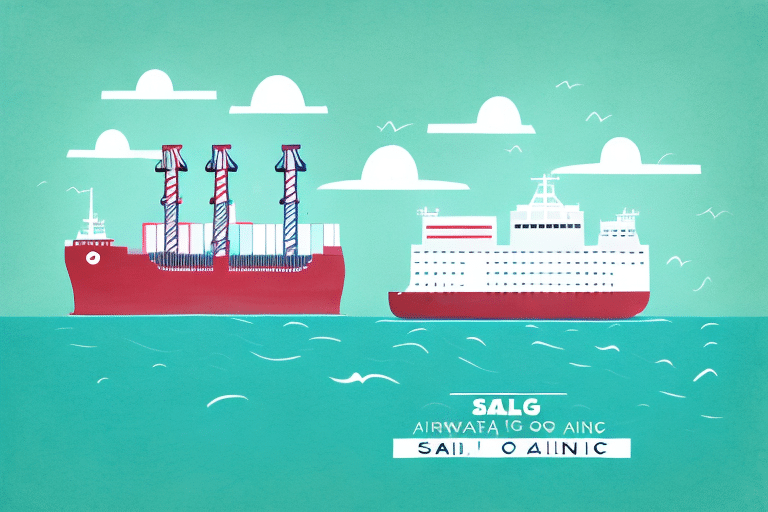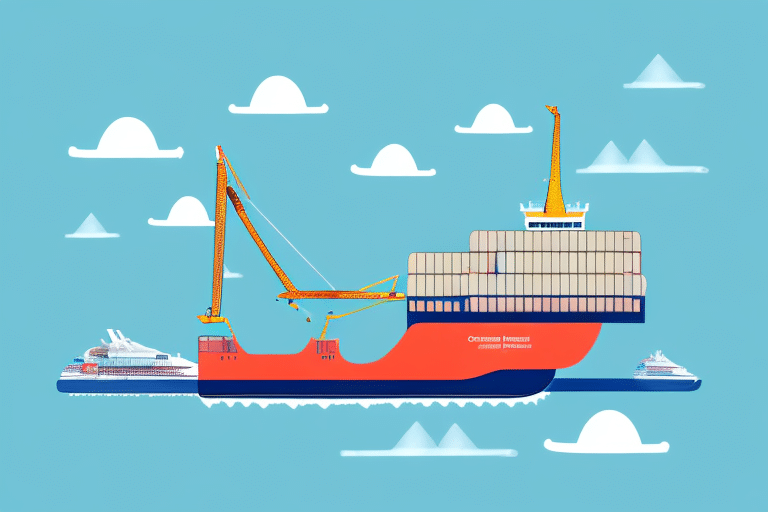What Are FOB Destination Terms?
FOB Destination terms are part of the Incoterms rules established by the International Chamber of Commerce (ICC) to define responsibilities in international trade transactions. Under FOB Destination, the seller is responsible for delivering the goods to a specified location, such as a port or warehouse, designated by the buyer. Ownership and risk transfer from the seller to the buyer only when the goods reach this destination. This provides the buyer with greater protection, as the seller bears the cost and risk until delivery is completed.
In contrast, FOB Shipping Point (also known as FOB Origin) transfers ownership and risk to the buyer once the goods are loaded onto the carrier at the seller's location. This fundamental difference affects how costs and risks are managed in international shipping.
How FOB Destination Terms Work
Implementing FOB Destination terms involves several key steps:
- Negotiation: Buyer and seller agree on FOB Destination terms, specifying the exact delivery location.
- Transportation Arrangement: The seller arranges and pays for transportation to the agreed destination.
- Risk Transfer: Ownership and risk are transferred to the buyer once the goods arrive at the specified location.
- Unloading: The buyer is responsible for unloading the goods and any subsequent transportation.
For example, if a U.S. retailer purchases electronics from a supplier in Germany under FOB Destination terms, the supplier handles all shipping logistics until the goods reach the retailer's warehouse. Only then does the retailer assume responsibility.
According to the Incoterms 2020, FOB Destination terms help clarify the division of costs and responsibilities, reducing potential disputes between trading partners.
Advantages and Disadvantages of FOB Destination Terms
Advantages
- Buyer Protection: The seller remains responsible for the goods during transit, reducing the buyer's risk.
- Cost Management: Sellers can negotiate bulk shipping rates, potentially lowering overall transportation costs.
- Simplified Logistics: Buyers do not need to manage the transportation process until delivery is complete.
Disadvantages
- Higher Seller Costs: Sellers bear the transportation costs and risks, which can increase their operational expenses.
- Limited Control for Sellers: Sellers may have less control over the choice of carriers and shipping methods.
- Potential for Delays: If transportation issues arise, sellers may face penalties or increased costs.
Key Differences Between FOB Origin and FOB Destination
The primary distinction between FOB Origin and FOB Destination lies in the point of risk transfer:
| Aspect | FOB Origin | FOB Destination |
|---|---|---|
| Risk Transfer | Occurs once goods are loaded onto the carrier at the seller’s location. | Occurs when goods arrive at the buyer’s specified location. |
| Responsibility for Shipping | Buyer arranges and pays for transportation. | Seller arranges and pays for transportation. |
| Control Over Shipping | Buyer has more control over shipping logistics. | Seller manages shipping logistics. |
Understanding these differences is crucial for businesses to allocate responsibilities and manage risks effectively in international trade.
Negotiating FOB Destination Terms
Successfully negotiating FOB Destination terms requires clear communication and detailed agreements. Here are some tips to consider:
- Define the Destination: Clearly specify the exact location where responsibility transfers to avoid ambiguities.
- Outline Responsibilities: Detail each party’s obligations regarding transportation, insurance, and customs clearance.
- Agree on Timelines: Establish realistic delivery schedules and penalties for delays to ensure accountability.
- Incorporate Clauses: Include clauses that address potential risks, such as damage or loss during transit.
- Seek Expert Advice: Consult with logistics and legal experts to ensure the terms are comprehensive and enforceable.
For more detailed guidance, refer to resources such as the U.S. International Trade Administration.
Common Mistakes and Legal Considerations
Common Mistakes
- Vague Terms: Failing to clearly define the delivery location can lead to disputes.
- Ignoring Insurance: Not adequately insuring goods during transit increases financial risk.
- Overlooking Customs: Neglecting to account for customs duties and import regulations can cause delays.
- Inadequate Documentation: Missing or incomplete shipping documents can complicate the transfer of ownership.
Legal Considerations
When using FOB Destination terms, it’s essential to be aware of the legal implications:
- Compliance with International Laws: Ensure all shipping practices adhere to the laws of both exporting and importing countries.
- Contract Clarity: Contracts should explicitly state all terms to prevent misunderstandings.
- Liability Issues: Clearly outline who is liable in cases of loss or damage during transit.
- Dispute Resolution: Establish mechanisms for resolving disputes, such as arbitration or mediation.
Consulting with legal professionals specializing in international trade law can help navigate these complexities.
Risk Management in FOB Destination Shipping
Effective risk management strategies are crucial when operating under FOB Destination terms:
- Comprehensive Insurance: Invest in insurance policies that cover various transit-related risks.
- Reliable Partners: Work with trustworthy suppliers and carriers with proven track records.
- Regular Monitoring: Use tracking technologies to monitor shipments in real-time and address issues promptly.
- Contingency Planning: Develop backup plans for potential disruptions, such as natural disasters or geopolitical events.
- Clear Communication: Maintain open lines of communication with all parties involved to ensure swift problem resolution.
Future Trends in Incoterms and International Shipping
International shipping and Incoterms are continuously evolving to meet the demands of global trade. Key future trends include:
- Technology Integration: Increased use of blockchain, IoT, and AI for enhanced transparency and efficiency in supply chains.
- Sustainability Focus: Growing emphasis on eco-friendly shipping practices to reduce carbon footprints.
- Regulatory Changes: Updates to Incoterms and international trade laws to address emerging challenges and opportunities.
- Enhanced Risk Management: Development of more sophisticated risk assessment and mitigation strategies.
- Global Collaboration: Greater collaboration between countries to streamline customs procedures and improve trade facilitation.
Staying informed about these trends can help businesses adapt and thrive in the dynamic landscape of international trade. For the latest updates, refer to the International Chamber of Commerce.








